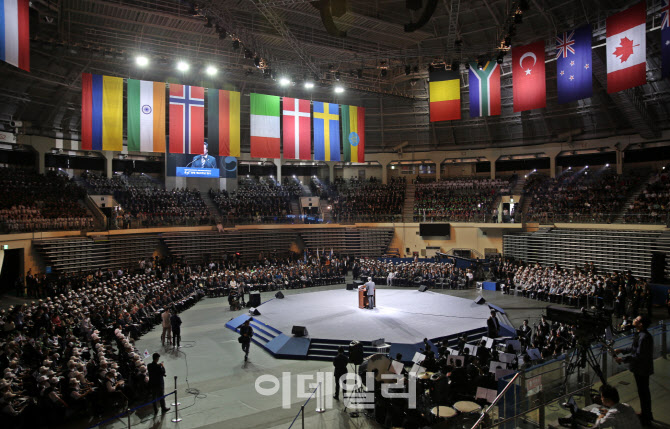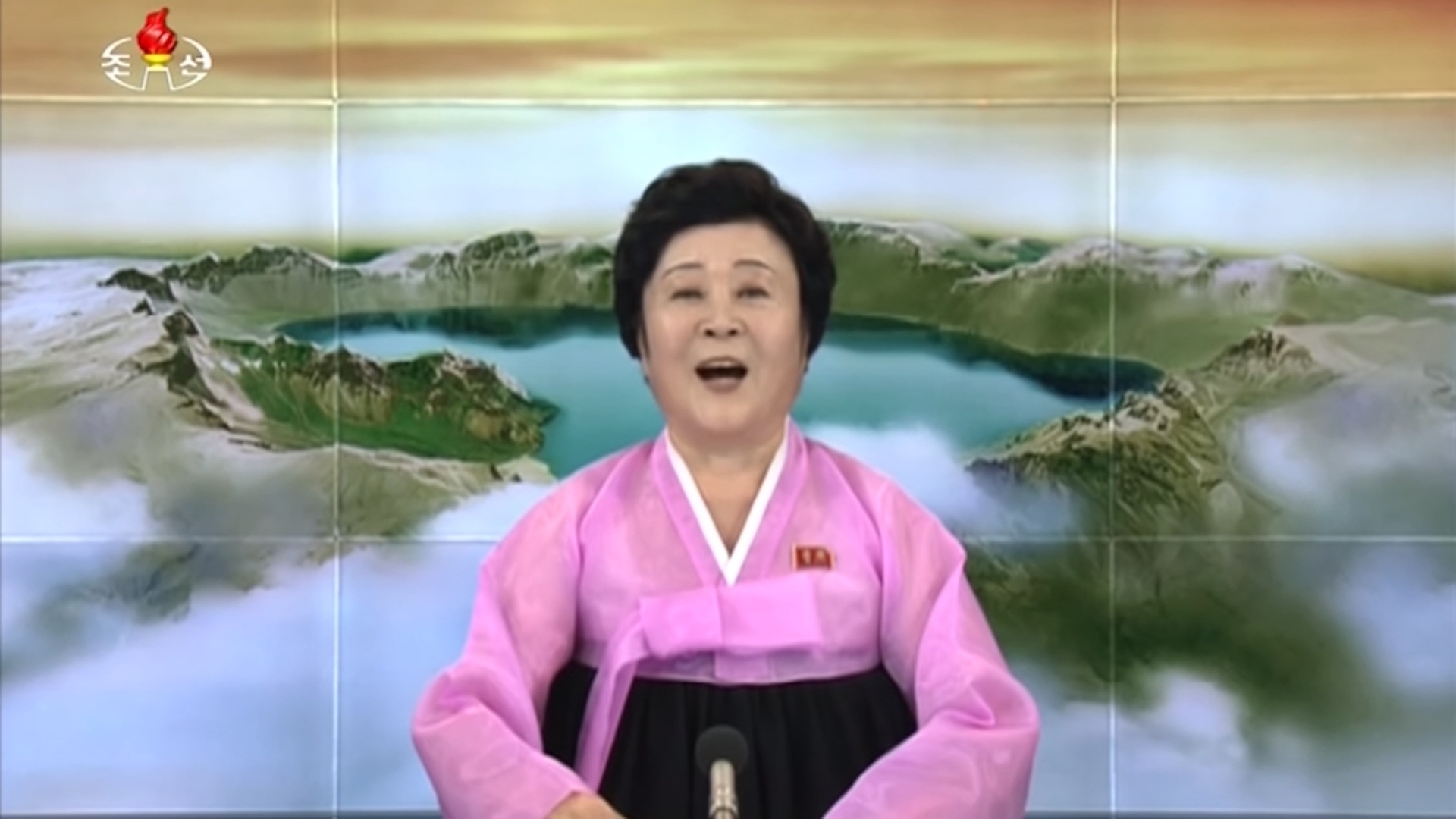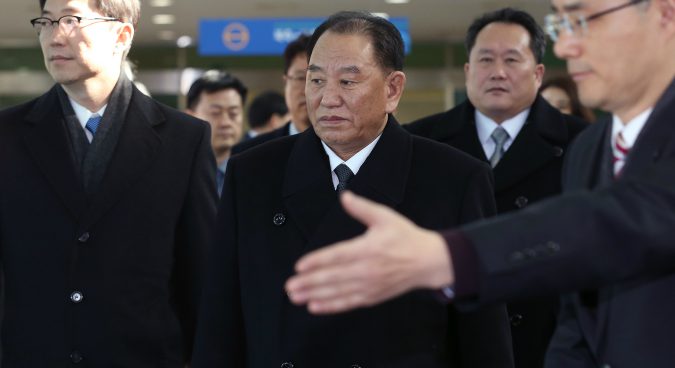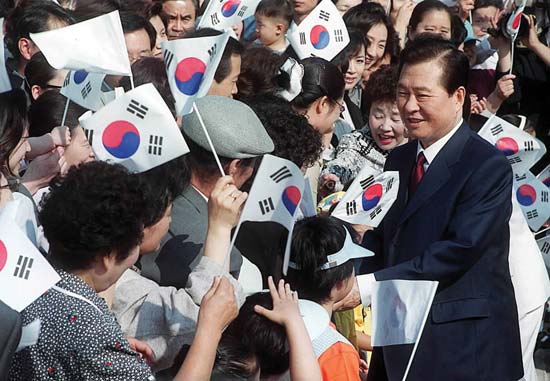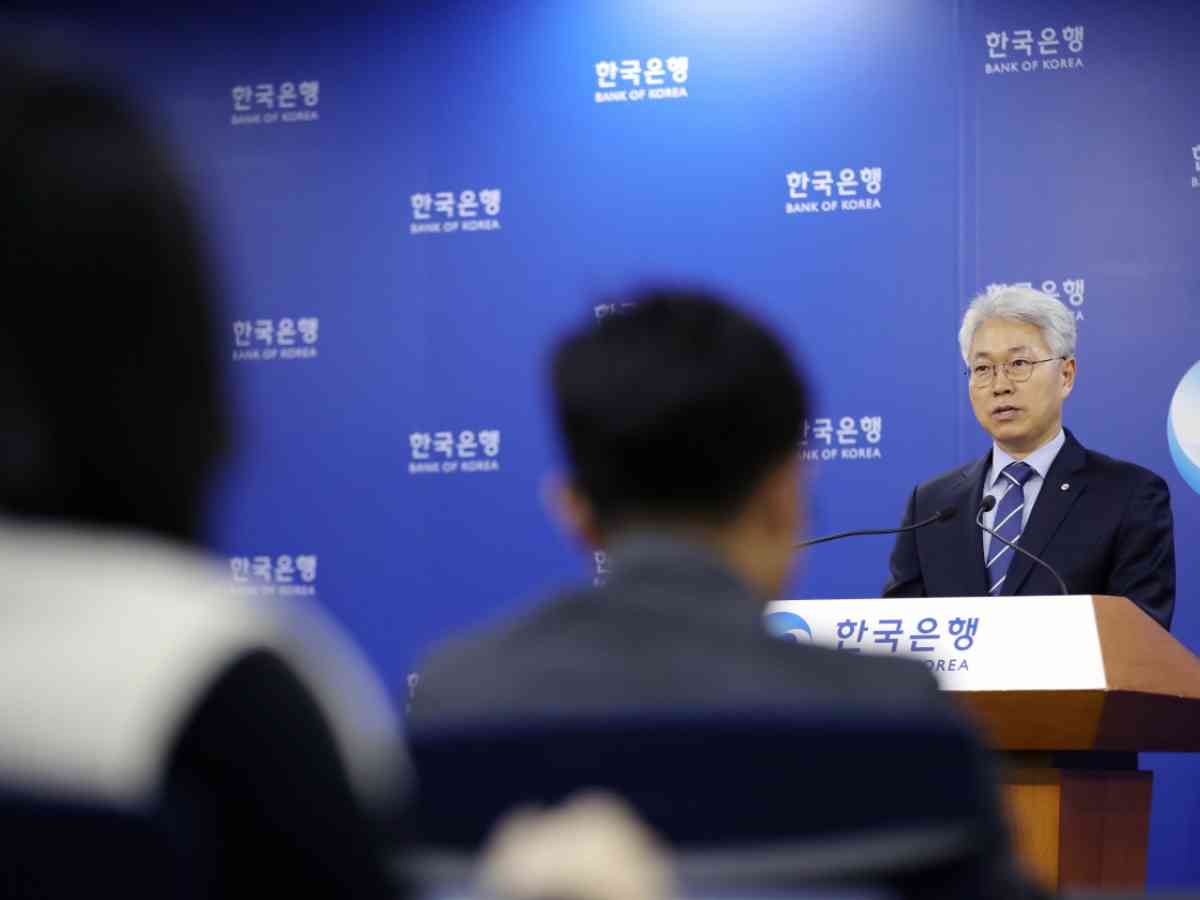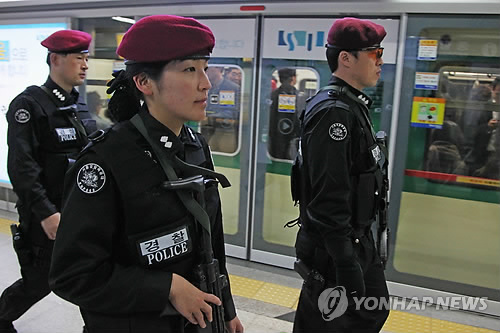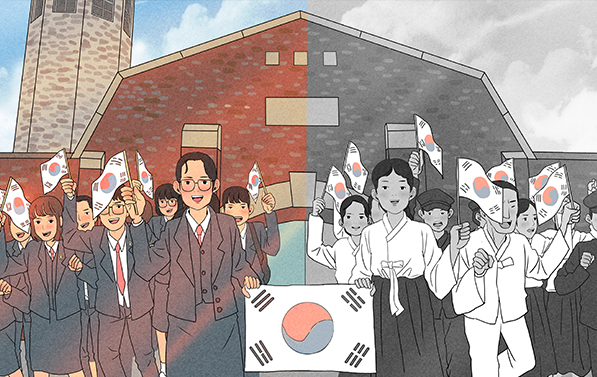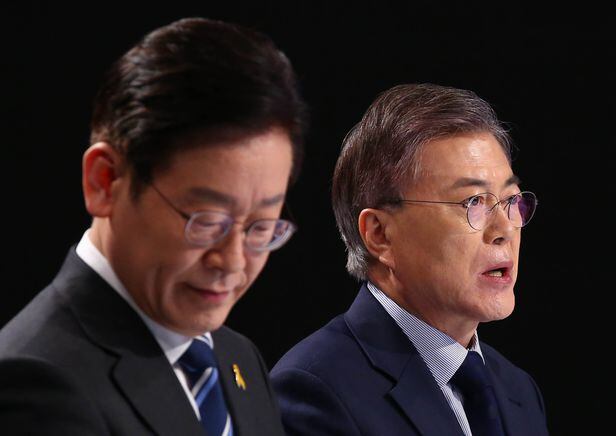- Oct 3, 2018
- 3,634
Emotional Scenes in North Korea
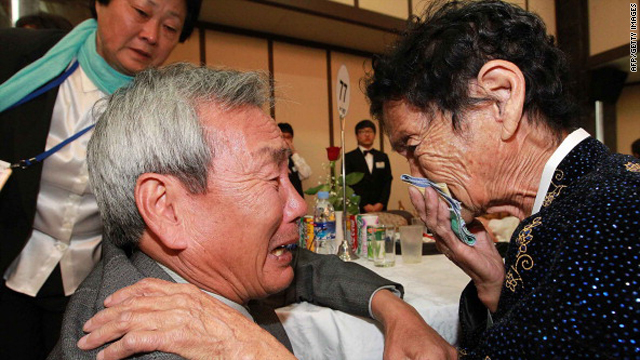
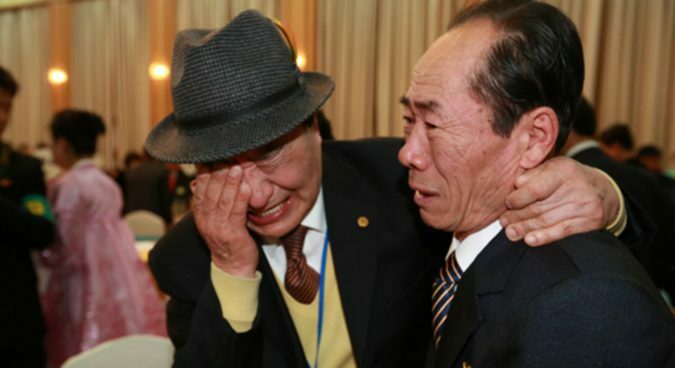
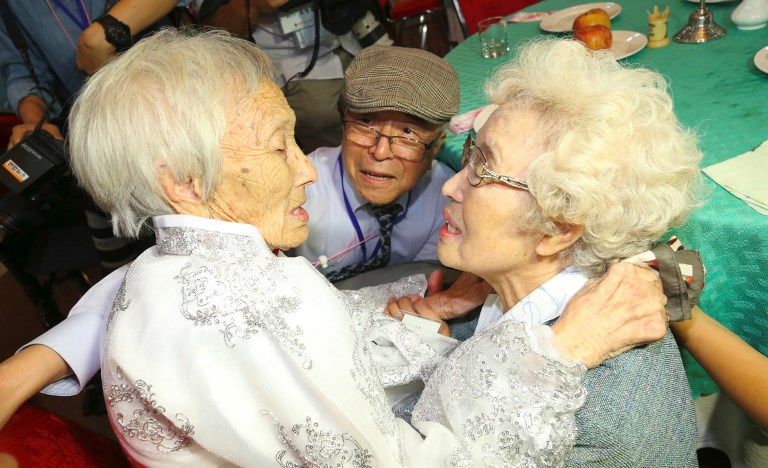
KUMGANGSAN, North Korea -- A group of 89 elderly South Koreans met with family members they were separated from by the 1950-53 Korean War in North Korea on Monday, officially kicking off a weeklong reunion event. They reunited with about 180 North Korean family members at Kumgangsan Resort on the eastern coast of North Korea. They are expected to participate in a string of face-to-face meetings and meals through Wednesday. The first session lasted about two hours. Among the group, seven people met with their offspring and 20 with siblings whom they were unable to meet after the war. The room where the reunion was held was filled with hugs and tears as the participants embraced their loved ones across the border for the first time in nearly 65 years.
The elderly and about 300 others embarked on a trip to North Korea around 8:30 a.m. in 27 buses from Hanwha Resort in the South’s northeastern coastal city of Sokcho, where they had spent the previous night. They were briefed on protocols and procedures for the event throughout Sunday. According to pool reports, some of the elderly in wheelchairs were supported by family members as they boarded the buses. The majority of them were spotted having breakfast before 6:30 a.m. and finalized preparations for their trip more than an hour before departure. Many had prepared gifts for their loved ones across the border, ranging from sentimental items such as family photos to practical choices such as cosmetics, toothpaste, socks and small sums of cash.
Nervous anticipation and nostalgia hung in the air among those waiting to meet their loved ones in the North, or for those who no longer have direct family members, their descendants. “This is my last opportunity to meet my nephew,” said Lee Kwan-joo, 93, who was born in Pyongyang and came to South Korea after beingseparated from his older brother during the war. “I’m taking my son with me for a reason: We will have to meet in order to truly become a family even after I die. This is something that can only happen in a divided country,” he added, tears swelling in his eyes.
Lee Geun-seom, 82 years oldwho had become separated from her son and husband during the war, hugged her now 61 year old son as she arrived at the table where he awaited. Her son, Ri Sang-chol, shed tears of joy as he pulled out a picture of his now-deceased father. Lee grabbed his hand and asked simple questions that she had been holding back for decades, such as “how many children do you have?”
Han Shin-ja, started wailing once she saw her two daughters -- now in their 60s -- that she had been forced to leave behind in the North during the war. The 89-year-old remained speechless for a while and tried to apologize, which was cut short by her daughters saying “it was OK” because their aunt had taken care of them.
There were also some South Korean family members of those who were taken to North Korea as prisoners of war or allegedly kidnapped by North Korean forces. The victims had already passed away, so they talked with their North Korean relatives. In line with the reunions, South Korean President Kim Dae-jung called for regularization of the cross-border event along with implementation of measures that could expand communication between the separated families, including the exchange of letters, video calls and more.
Cha Chae-geun, who was expecting to meet his long-lost brother, said he had slept well through the night. The 84-year-old looked excited as he told the press pool he had visited the slopes of Kumgangsan before.
Unification Minister Park Hyun-seon, who had arrived in Sokcho wished them well before the group crossed the border. The 89 were to attend the first round of a two-part event from Monday to Wednesday. The second round is set to be held from Friday to Sunday with separate participants, including 83 North Korean members of separated families. The family members will be granted around 11 hours of face-to-face meetings in each round, a ministry official previously said. The itinerary provided by the South’s Korean Red Cross showed the families would interact with each other through a series of meals, but stay and sleep in separate rooms.
Holding the event for reunions of separated families comes as part of the agreement reached by South Korean and North Korean officials in the March 31st Declaration. While there are some 132,124 South Korean members registered in a government database who seek to meet with their relatives, Among them, nearly 86 percent of the group are 70 or older. The South and North finalized the list of participants early this month. Priority was given to those who had direct family members on the other side of the border. The two Koreas technically remain at war, as the Korean War ended with an armistice, not a peace treaty. The division of the peninsula along the 36th parallel remains the defacto border between the two Koreas.



KUMGANGSAN, North Korea -- A group of 89 elderly South Koreans met with family members they were separated from by the 1950-53 Korean War in North Korea on Monday, officially kicking off a weeklong reunion event. They reunited with about 180 North Korean family members at Kumgangsan Resort on the eastern coast of North Korea. They are expected to participate in a string of face-to-face meetings and meals through Wednesday. The first session lasted about two hours. Among the group, seven people met with their offspring and 20 with siblings whom they were unable to meet after the war. The room where the reunion was held was filled with hugs and tears as the participants embraced their loved ones across the border for the first time in nearly 65 years.
The elderly and about 300 others embarked on a trip to North Korea around 8:30 a.m. in 27 buses from Hanwha Resort in the South’s northeastern coastal city of Sokcho, where they had spent the previous night. They were briefed on protocols and procedures for the event throughout Sunday. According to pool reports, some of the elderly in wheelchairs were supported by family members as they boarded the buses. The majority of them were spotted having breakfast before 6:30 a.m. and finalized preparations for their trip more than an hour before departure. Many had prepared gifts for their loved ones across the border, ranging from sentimental items such as family photos to practical choices such as cosmetics, toothpaste, socks and small sums of cash.
Nervous anticipation and nostalgia hung in the air among those waiting to meet their loved ones in the North, or for those who no longer have direct family members, their descendants. “This is my last opportunity to meet my nephew,” said Lee Kwan-joo, 93, who was born in Pyongyang and came to South Korea after beingseparated from his older brother during the war. “I’m taking my son with me for a reason: We will have to meet in order to truly become a family even after I die. This is something that can only happen in a divided country,” he added, tears swelling in his eyes.
Lee Geun-seom, 82 years oldwho had become separated from her son and husband during the war, hugged her now 61 year old son as she arrived at the table where he awaited. Her son, Ri Sang-chol, shed tears of joy as he pulled out a picture of his now-deceased father. Lee grabbed his hand and asked simple questions that she had been holding back for decades, such as “how many children do you have?”
Han Shin-ja, started wailing once she saw her two daughters -- now in their 60s -- that she had been forced to leave behind in the North during the war. The 89-year-old remained speechless for a while and tried to apologize, which was cut short by her daughters saying “it was OK” because their aunt had taken care of them.
There were also some South Korean family members of those who were taken to North Korea as prisoners of war or allegedly kidnapped by North Korean forces. The victims had already passed away, so they talked with their North Korean relatives. In line with the reunions, South Korean President Kim Dae-jung called for regularization of the cross-border event along with implementation of measures that could expand communication between the separated families, including the exchange of letters, video calls and more.
Cha Chae-geun, who was expecting to meet his long-lost brother, said he had slept well through the night. The 84-year-old looked excited as he told the press pool he had visited the slopes of Kumgangsan before.
Unification Minister Park Hyun-seon, who had arrived in Sokcho wished them well before the group crossed the border. The 89 were to attend the first round of a two-part event from Monday to Wednesday. The second round is set to be held from Friday to Sunday with separate participants, including 83 North Korean members of separated families. The family members will be granted around 11 hours of face-to-face meetings in each round, a ministry official previously said. The itinerary provided by the South’s Korean Red Cross showed the families would interact with each other through a series of meals, but stay and sleep in separate rooms.
Holding the event for reunions of separated families comes as part of the agreement reached by South Korean and North Korean officials in the March 31st Declaration. While there are some 132,124 South Korean members registered in a government database who seek to meet with their relatives, Among them, nearly 86 percent of the group are 70 or older. The South and North finalized the list of participants early this month. Priority was given to those who had direct family members on the other side of the border. The two Koreas technically remain at war, as the Korean War ended with an armistice, not a peace treaty. The division of the peninsula along the 36th parallel remains the defacto border between the two Koreas.




